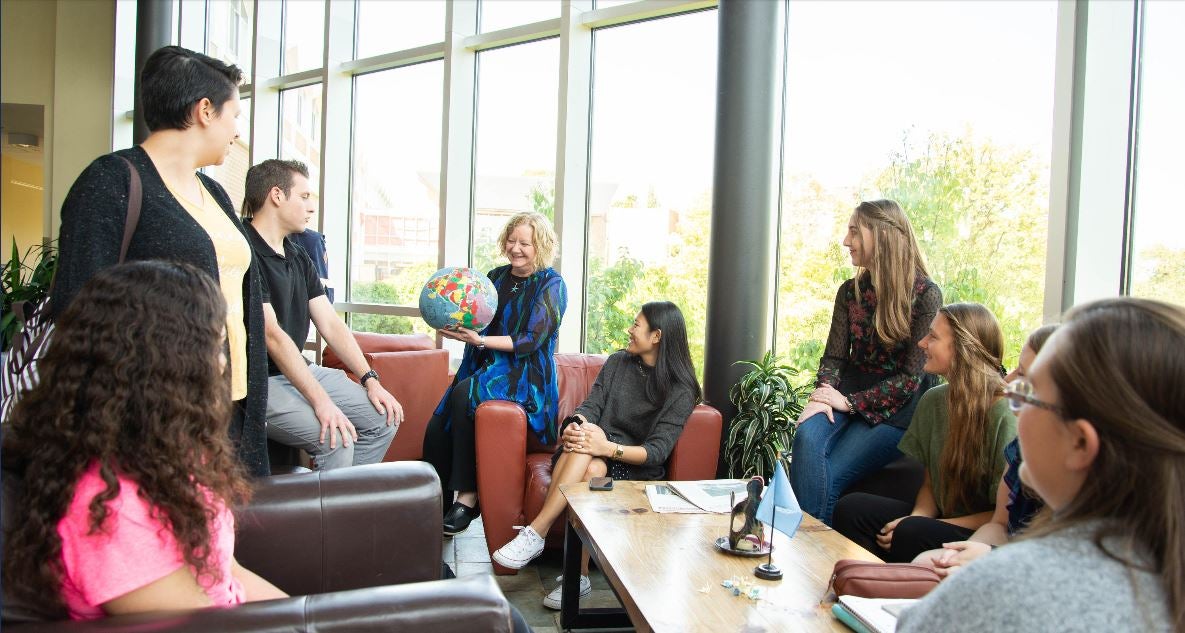
By Rachel Reist, PACS Undergraduate Academic and Administrative Officer and Internship Coordinator
The Peace and Conflict Studies (PACS) program at Grebel intentionally blends theory and practice. As with many professions, peace practitioners know that the theory behind any approach is only a part of successful work—theory must be put into practice. Similarly, PACS lectures are important, but so is blending that knowledge with practice. Through PACS curriculum and a wide range of experiential learning options available through the University of Waterloo, PACS students have the opportunity to explore this relationship.
Internships are a key way for students to spend an extended period of time putting the theory they have learned in the classroom into practice. Over the last 40 years, PACS students have completed internships with a wide range of organizations in countries across the world. “One of my greatest experiences with the PACS program was my internship in Guatemala,” reflected former PACS student, Megan. “I took the academic and theoretical training of the classroom and applied it to the practical experience of living in Guatemala at the height of the civil war.”
For those looking to add experiential learning in mediation to their toolbox, the Conflict Management Certificate Program at Grebel is a professional development program that offers top-quality intensive skills training workshops. These workshops are available to students for academic credit.
However, students don’t always need to leave the classroom for experiential learning. One of the ways that theory and practice are blended in the classroom is through the extensive use of role plays and simulations. These are used in many PACS classes, but most prominently in PACS 323, Negotiation Theories. Prof. Jennifer Ball has designed a classroom environment where students spend the first half of the term learning the theory and strategy behind negotiation through readings and lectures. Then, for the second half of the term, students practice these newly-learned skills in group negotiations of complex scenarios that students have designed themselves.
One student described the impact of this class on his success in law school where students were given a wrongful dismissal scenario to negotiate. “Of the 10 teams given the same case, we were the only team not to re-hire the individual and we settled on a much lower monetary award than most by creating value in other areas,” this recent graduate noted. “The facilitator, a professor and lawyer of 17 years, was impressed with my negotiating and asked whose course I had taken and where.” As the student quickly found out, having had a strong blend of theory and practice in their undergraduate studies helped them succeed in this law school simulation.
UWaterloo students can now add an EDGE Certificate to their degree that recognizes the variety of experiential learning opportunities they have incorporated into their education. This certificate provides additional skill building workshops on key professional competencies, and helps students market themselves to employers.
With experiential learning opportunities built into the PACS program and others available through UWaterloo, PACS students are well positioned to jump into future careers with a solid understanding of the relationship between theory and practice and the ability to blend the two in their work.